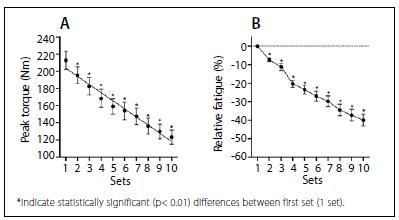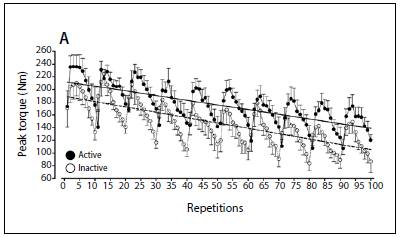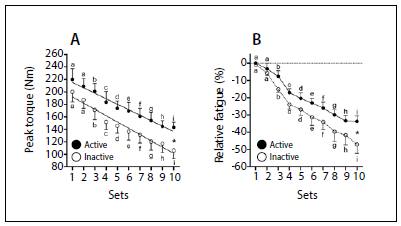Introduction:
Fatigue during voluntary muscle contractions is a complex and multifactorial phenomenon associated with central changes and adaptations of the neuromuscular system.
Objective:
The purpose of this study was to evaluate the fatigue induced by intermittent successive extension of the knee between active and inactive university students. Method: Twenty healthy men (≥18 years), voluntarily participated in this study. To determine the maximum voluntary isometric contraction (MVIC) of the knee extensors muscle group, three sets of isometric contractions of knee extension were performed for five seconds with five minutes of rest between sets. The fatigue protocol consisted of 10 sets of 10 maximal concentric contractions of the extensor on the right knee, performed at 75% of MVIC with an interval of 45".
Results:
Significant reductions were observed (p<0.01), both in isometric strength (-34±4%) and the dynamic strength (-40 ± 3%). In addition, the slope of relationship strength x repetition was -0.79±0.07 Nm/repetitions and the magnitude of the effect reached -8.90.
Conclusion:
The protocol was useful to induce peripheral fatigue, although muscle strength is greater in the active group. In both isometric and dynamic action, muscle fatigue did not differ between groups.
muscle strength; dynamometer; knee; isometric contraction







